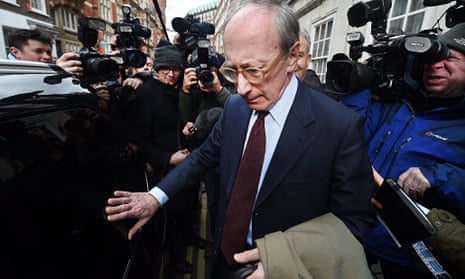Due credit to the Telegraph second time round. What do you do when you’re digging yourself deeper into a hole? Dig a new one under the Palace of Westminster. So a bad week got much better (except for Malcolm Rifkind and Jack Straw). It wasn’t a pristine hit, perhaps. The subsequent shame and departures depended more on what the disgraced duo said on camera to Channel 4’s Dispatches programme. But no one could doubt a public service sting, absolutely as powerful a force for MPs’ good behaviour as another bout of rule-making and line-drawing by party leaders facing an election.
Pause for just a minute, though. This phoney Chinese business stuff was a trawl round the palace, not a targeted operation. Only two out of 12 of the honourable members who were approached seemed to bite. There doesn’t seem to have been specific targeting then – just as (an earlier Telegraph exploit) there wasn’t specific targeting of gabby, disloyal Lib Dem MPs when a couple of winsome lady reporters posed as eager constituents.
The Press Complaints Commission, as was, found against the Telegraph then. Ipso, as is, promised deeper analysis of the Brooks Newmark sexting sting, but didn’t deliver.
And now for the Rifkind-Straw trawl? Expect only silence. The bigger the fish who apologise and quit, the less that modus operandi seems to matter. Not codes and rules at all: just brute common sense.
■ Readers and numerous writers were shocked last week at the thought that the big advertisers could cow news judgments inside Telegraph Towers. But manipulation and threat come in many shapes and sizes. Consider the culture, media and sport select committee report last week on the future of the BBC.
There goes the BBC Trust, replaced by an executive board with an HMG-appointed chairman. There, on a half-life support system, goes the licence fee. Here comes a German-style TV levy, plus extra payments for extra services and encryption to keep freeloaders at pay. Here come new injunctions to subsidise local journalism and world services. Here’s the return of top-slicing.
All this, and more, is yet another heavy cloud hanging over Broadcasting House. All this, and more, is bound to wrinkle controllers’ brows as they begin another fraught election campaign (with retribution in various forms awaiting). Such a selectively menacing selection of wheezes could have been left for three more months so a fresh government, just elected, could begin to mull the options.
But why wait until then if you can finger Tony Hall’s collar now?
Lebedev leaves it to his editors
My editors can decide which party to back in May (says Alexander Lebedev, owner of the Standard and three different Indies). Oh, and they can also decide whether to sign up for Ipso regulation or not. The editors rule OK. All very laudable stuff from a laudable Russian press baron – but strangely leaving out one bit of the equation. Do journalists on his four papers see Evgeny Lebedev, the long-standing scion in London situ, as a benign, saintly champion of non-interference? Does Evgeny somehow not exist day after day, month after month, as though exiled to his Italian villa? Like father, perhaps, but not quite like this son.

